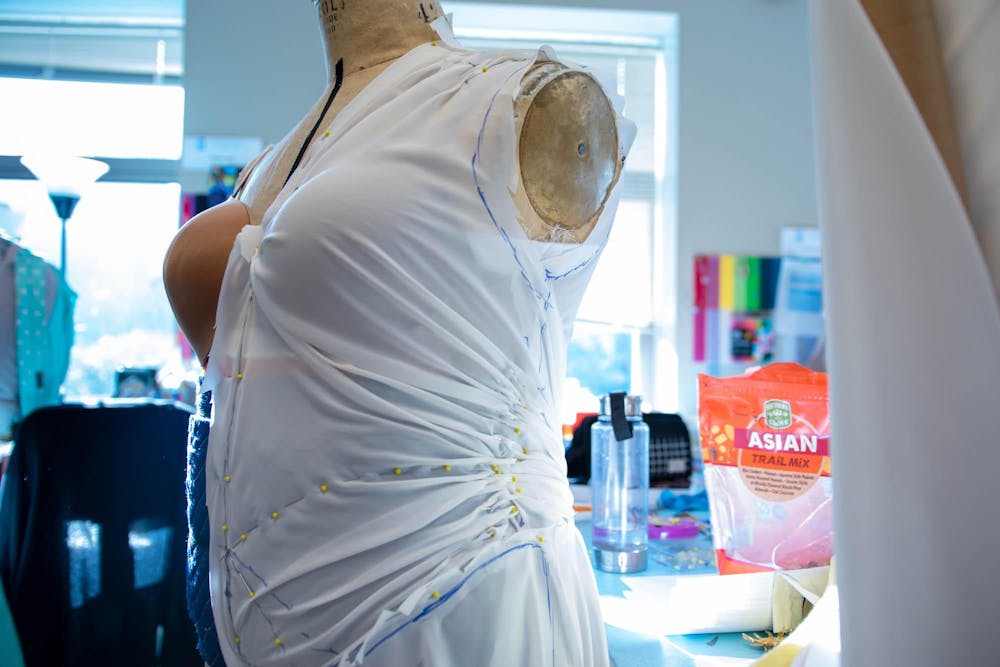Every theater production at PlayMakers Repertory Company requires some sort of costuming. Whether readymade clothes need to be altered or new costumes need to be created from scratch, the students of UNC's Master of Fine Arts in Costume Production oversee each button and thread.
The Costume Production MFA is a three-year program housed in the Department of Dramatic Art. In addition to working in PlayMakers’ productions, they manage a schedule of classes that include subjects like couture construction and pattern creation.
“It’s so much work," Jocelyn Chatman, a third-year Costume Production graduate student, said. "I don’t really have a life outside of this, I will say that. I will say, I’ve never learned so much in a short amount of time in my entire life.”
The job of costume production is to take the ideas of a designer and turn them into a physical product. Students use different methods, like draping and pattern drafting, to create the patterns that allow the designs to be turned into actual garments.
“We take the sketches and make those 2D renderings into reality,” Sally Rath, a second-year Costume Production graduate student, said.
Sometimes, costuming doesn’t always require creating something new and elaborate. Costume production can also involve altering preexisting garments.
“PlayMakers does a lot of modern-ish shows, you know, so we sometimes do a lot of alterations on the shows that are super modern,” Zachary Morrison, a second-year Costume Production graduate student, said. “Like, we are going to H&M, we’re going to all those other stores and we’re buying off the rack, and then we’re altering it.”
Currently, the students are creating the costumes for PlayMaker’s production of “Misery.”
The process of creating costumes for the theater productions is very involved. Everyone has a different role – either draper, stitcher, first hand or craftsperson.



